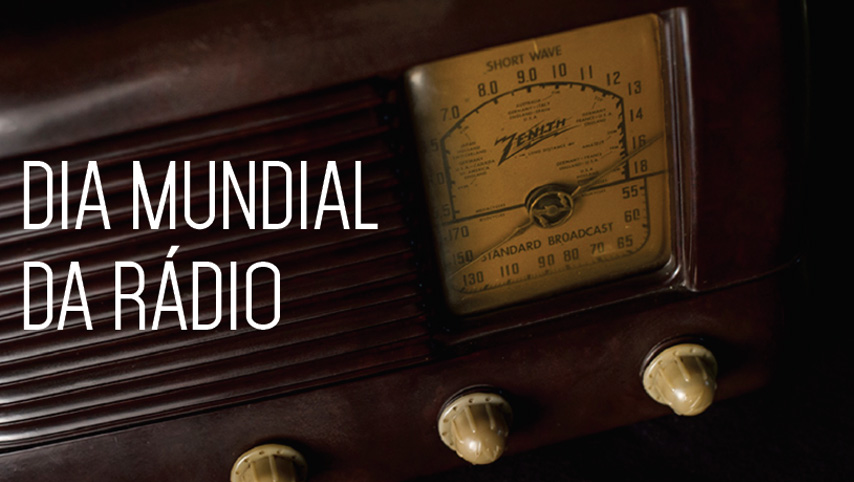World Radio Day is celebrated annually on February 13.
Now, in an era where social networks, YouTube and Spotify occupy any of our time, is there still room for Radio?
The answer is clearly “Yes”.
Radio is still the means of social communication that reaches the most public and that has been able to adapt perfectly to new technologies, offering listeners new means of transmission, namely online, a new interaction through social networks and showing a little more of you and the professionals through live video broadcasts or filmed items that are broadcast to the world on video.
According to a study presented by Marktest, the Portuguese listen, on average, to 3 hours and 13 minutes of radio per day. Whether traveling by car, at work or at home, the radio continues to be the company of many of us. The study also indicates that men aged between 25 and 44 tend to listen to more than three hours of radio.
The date was chosen because it was on this day that United Nations Radio broadcast for the first time, in 1946, a program simultaneously for a group of six countries.
The date was declared in 2011 by UNESCO and the first World Radio Day was celebrated in 2012.
Radio continues to be the means of social communication that reaches the largest audiences, continuing to adapt to new technologies and new equipment, with online transmission via streaming, for example.
It is a very useful means for the population, whether as a tool to support debate and communication, cultural promotion or in cases of social emergency. For media professionals, radio is a platform to spread facts and stories.
The radio accompanied the main world historical events and today continues to be a fundamental means of communication. This means of social communication has adapted to the digital age and continues to be a reliable medium for the population, who receive information on time, which is one of the most positive characteristics of the radio.
The radio has existed for about 110 years, in Portugal the first experiences date back to 1914 with the appearance of Rádio Hertz, created by Fernando Gardelho Medeiros, in Lisbon. In 1923, the Portuguese Society of Wireless Telephony Amateurs was created, a precursor to today’s radio stations, such as Rádio Clube Português (currently Grupo Media Capital) in 1931, Emissora Nacional de Radiodiversão (currently Antena 1) in 1935 and a year later Rádio Renascença.
The so-called golden years of radio, between 1930 and 1950, resulted in a phenomenon of broadcasting, which sought to reconstruct reality inside the studio with dramatizations, shows and humorous rubrics that, among other purposes, allowed criticizing the regime. Aware of the radio’s potential, the dictatorship established in Portugal, the Estado Novo, used this technical and discursive device at the service of the interests of power, as an instrument for legitimizing the dictatorship.
In Portugal, we can say with absolute certainty that the radio is one of the pillars of democracy, as it was through it that the “passwords” that set in motion the movement of the Armed Forces, which triggered the Carnation Revolution of 1974.
Since then, much has been done on the radio, which today continues to be vital for a large part of the population. The emergence of the Internet changed the communication paradigm, and radio was no exception. Today we can listen to the radio online and watch some programs broadcast by radio in any part of the globe in audiovisual format.
Surely you’ve laughed to yourself in your car while commuting to work. Radio is not just sounds, music, voices and news. It is a company that cradles us when we are alone, transmitting an “incomplete” narrative, due to the visual absence, but which allows us to travel without leaving the place. It was and will continue to be a means of excellence of a popular nature, easily accessible even to the poorest populations, playing a fundamental role at local level.
Despite the existing inequality in terms of technological development and, consequently, access to new technologies, radio continues to be an accessible and attainable form of access to information, even without electricity. Thus, the radio manages to guarantee rights such as freedom of expression and thought, promoting diversity and bridging the gap between traditional and advanced technologies.






Feliz Dia Mundial da Radio 📻 💕